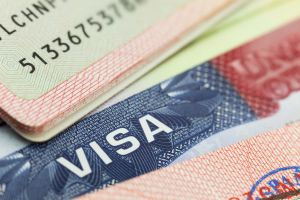If you’re doing regular business between your country and the U.S., the E-1 Visa could be your next move. It is especially true if you’re based in a trade-heavy city like Laredo, Texas. But how much trade is enough to qualify? That’s where things get specific.
This article breaks down exactly what counts as “substantial trade” under the E-1 Visa. You’ll learn what immigration officials expect regarding volume, frequency, and type of transactions.
We’ll also examine how Laredo’s strong trade infrastructure can give your application an edge. Whether you’re moving goods, services, or both, knowing what qualifies can make all the difference.
Key Requirements For The E-1 Visa & Trade Eligibility
The E-1 Visa is a nonimmigrant classification that allows foreign nationals from treaty countries to enter the United States to conduct substantial trade. The Visa is available to individuals who own or work for businesses in international trade involving goods, services, or technology.
A fixed dollar amount does not define substantial trade. Instead, it is measured by the frequency and volume of transactions over time. A single high-value deal is not enough; consistent, ongoing activity is what immigration officers seek.
Additionally, more than 50% of the trade must occur between the U.S. and the treaty country. Understanding these requirements is critical for building a compelling application and demonstrating legitimate business operations.
Determining The Required Trade Volume For An E-1 Visa
Trade volume is one of the most important—and often misunderstood—components of a successful E-1 Visa application. U.S. immigration law does not define a specific dollar threshold for what qualifies as “substantial.” You must show that your business is actively and consistently engaged in international trade.
No Fixed Minimum, But Standards Apply
There is no set monetary baseline for trade volume. A company with $1 million in annual cross-border transactions may qualify. However, a business trading at lower levels might also be eligible, depending on the frequency and regularity of those transactions.
Immigration officials assess the overall pattern rather than isolated deals. A moderate volume of recurring transactions holds more weight than one or two high-value sales.
What Officers Look For
Trade must be:
- Regular and ongoing.
- Principally between the U.S. and the treaty country.
- Documented with invoices, shipping records, contracts, and financial statements.
More than 50% of the business’s international trade must be with the United States. The application may face additional scrutiny if most of the trade is with other countries.
Industry Context Matters
Different industries have different benchmarks. A tech consulting firm may qualify with fewer but higher-value projects. Meanwhile, a manufacturing company might need more frequent shipments, even if the individual values are lower. Consistency and documentation remain central in either case.
Determining whether trade is substantial requires carefully evaluating financial records and business operations. With this understanding in place, clarifying what kinds of trade qualify under E-1 standards is essential.
What Constitutes Substantial Trade Under The E-1 Visa?
To qualify for an E-1 Treaty Trader Visa, you must demonstrate that your trade activities with the United States are substantial. It may involve goods, services, or technology—each evaluated by the U.S. government for sustained and verifiable cross-border activity.
Physical Goods
One of the most straightforward ways to meet the E-1 Visa criteria is by exchanging physical goods. These include manufactured products, raw materials, consumer merchandise, and industrial equipment. To qualify, you must prove that your imports or exports are not isolated incidents but rather part of a consistent and ongoing commercial relationship.
Supporting documentation should include invoices, shipping records, bills of lading, and customs declarations. The regularity and volume of these transactions help establish the substantial nature of the trade.
Qualifying Services
Service-based trade is also acceptable under the E-1 Visa, provided it involves cross-border delivery and compensation. Qualifying services may include professional offerings such as consulting, legal advisory, engineering, design, and marketing.
The key requirement is that these services must be rendered between the U.S. and the treaty country. Evidence such as service agreements, client contracts, proof of payment, and communication records should be presented to substantiate the legitimacy and volume of the transactions.
Trade In Technology
Technology-based transactions are increasingly relevant for E-1 Visa qualification in today’s global economy. This includes the licensing of intellectual property, the distribution of software, or the provision of software-as-a-service.
Companies engaged in technology consulting or offering proprietary digital platforms must demonstrate that a substantial portion of their revenue comes from trade with the United States. Detailed records, including licensing agreements, client invoices, and financial statements, are essential to validate the substantial nature of the technology trade.
Understanding what qualifies as substantial trade is only one part of the E-1 Visa equation. Many applicants still have lingering questions about how these rules are applied. They wonder what kind of documentation carries the most weight. They also seek guidance on how to navigate common procedural hurdles.
FAQs On Trade Requirements For The E-1 Visa
Applicants often have key questions about what qualifies as substantial trade and how to properly structure an E-1 Visa application. Clarifying these points can help avoid confusion and improve the chances of a successful petition. Below are answers to some of the most frequently asked questions regarding trade requirements under the E-1 classification.
What Is The Minimum Trade Volume Required For An E-1 Visa?
There is no predetermined monetary threshold that defines “substantial” trade. U.S. Citizenship and Immigration Services evaluates each application based on the consistency and volume of transactions over time.
You must demonstrate ongoing significant international trade in the context of the business’s size and industry. Some successful cases involve hundreds of smaller transactions. Others meet the standard with fewer but higher-value deals. The key is that the trade activity remains regular and well-documented.
Can Services Count Towards Substantial Trade For An E-1 Visa?
Services can qualify if they involve cross-border transactions between the U.S. and the treaty country. The service must be clearly defined and contract-based, and revenue must be generated that is traceable to international clients.
Examples include consulting, legal support, marketing, and software services. As with goods, the applicant must provide documentation such as contracts, invoices, and proof of payment to demonstrate the scale and regularity of the service-based trade.
Must The Trade Be Direct Between The U.S. & The treaty Country?
Yes, at least 50 percent of the international trade must be between the United States and the applicant’s treaty country. This is a core requirement of the E-1 Visa and ensures that the trade relationship supports the intent of the treaty.
Businesses that operate globally must carefully track their trade flows to verify that the majority aligns with this standard. Accurate reporting and financial records are critical to meeting this condition.
Understanding the requirements is only one part of a successful E-1 Visa application. Navigating the process with professional legal support can make a significant difference in both preparation and outcome.
Lozano Law Firm Will Assist You
At Lozano Law Firm, we guide clients through the E-1 Visa process with precision, dedication, and a deep understanding of U.S. immigration law.
We evaluate your eligibility, review trade documentation, and build a strong, well-documented petition that aligns with USCIS expectations.
We understand that each client’s situation is different. Whether you are trading goods, services, or technology, we take the time to understand your operations and highlight the strengths of your case. From document preparation to legal representation, every step is handled with clarity and attention to detail.
We aim to simplify a complex process and increase your chances of success. We are ready to support you where trade and opportunity meet. Let us help you move forward, legally and confidently.
Qualifying for an E-1 Visa depends on proving consistent and substantial trade between the U.S. and a treaty country. Laredo, Texas, businesses are uniquely positioned to meet this requirement due to the city’s high-volume cross-border commerce.
Understanding the trade criteria is essential, but skilled legal guidance can make the difference between approval and delay. Lozano Law Firm provides the experience, clarity, and personalized support needed to build a strong E-1 application. Contact us to take the next step with confidence.





